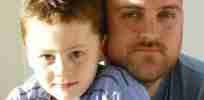Sarah Deweerdt
Articles written for the GLP list the source as Genes and Science. All other articles were written for the sources noted with excerpts provided by the GLP.

How repetitive movements help autistic people cope with anxiety
Typical infants and toddlers may kick their legs repeatedly, rock back and forth while playing or flap their hands in ...

Why are older parents more likely to have children with autism?
Older men and women are more likely than young ones to have a child with autism, according to multiple studies ...

Popular autism ‘signaling imbalance theory’ challenged, suggesting new drugs ‘may have little value’
An analysis of four mouse models negates certain assumptions underlying the “signaling imbalance theory,” a popular hypothesis about autism’s origins ...
Understanding environmental risk factors for autism: What’s real and what’s not
Here, we explain why it is difficult to link autism to environmental factors, and what scientists know about how the ...
Diagnosing autism: Proposed revision of global diagnostic manual raises concerns
The proposed new version of the global manual for diagnosing medical conditions gets many things right about autism — but ...
Differences in brain reward system may explain why autistic people are less interested in socialization
The brain’s system for sensing pleasure and reward shows unusual activation patterns in people with autism, according to an analysis ...
Video games as treatment for autism: Do gains translate to real life?
Over the past year, several small pilot studies have produced promising results for games designed to help children with autism, ...

